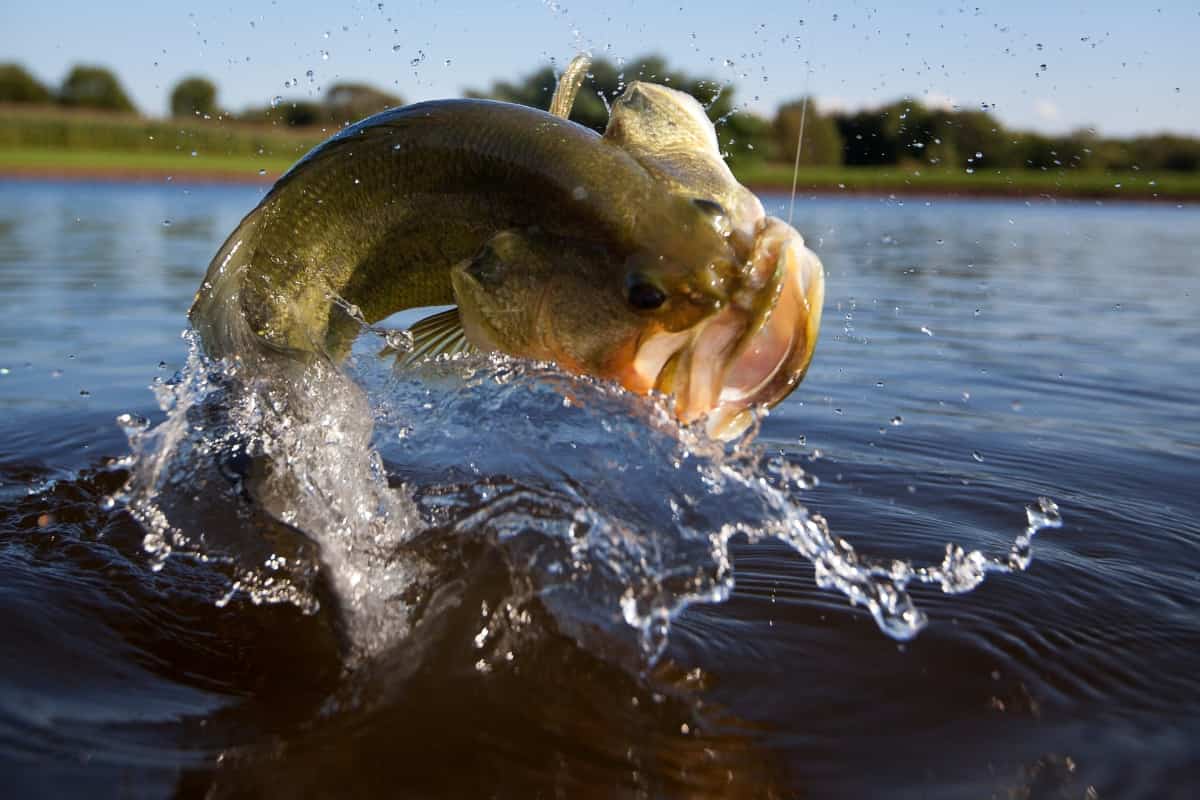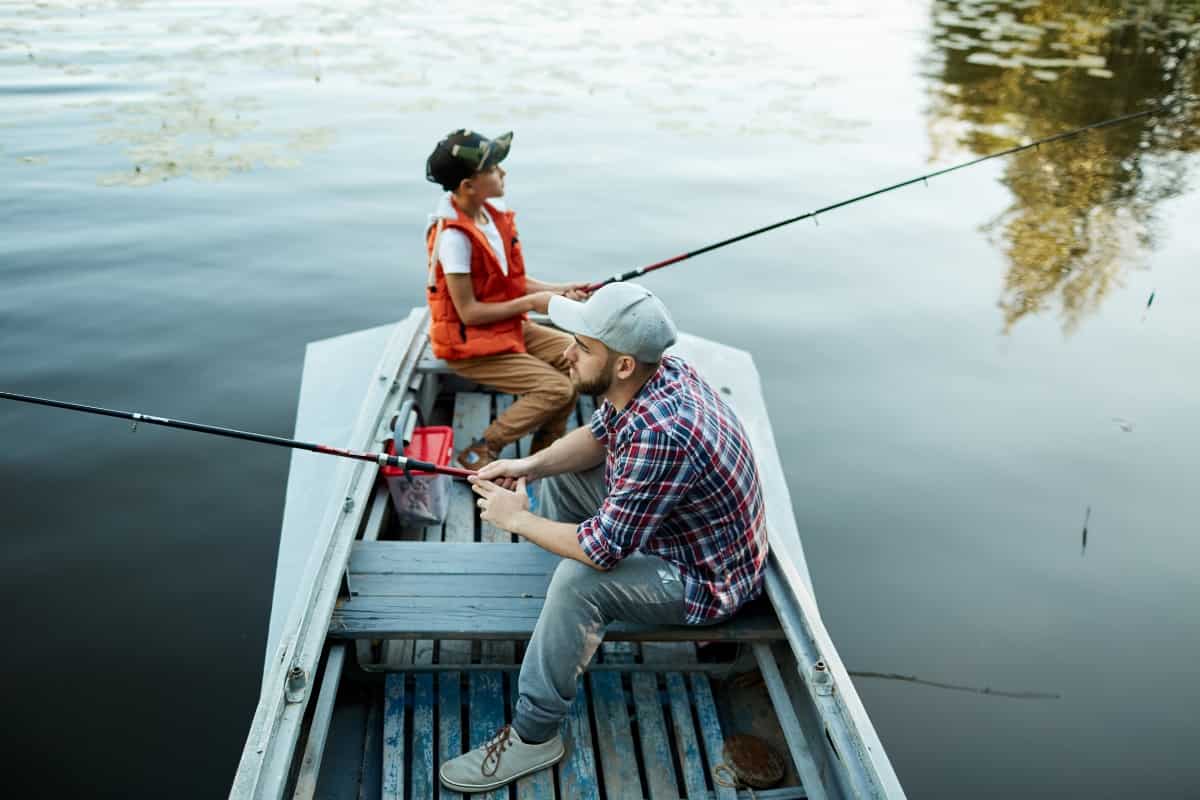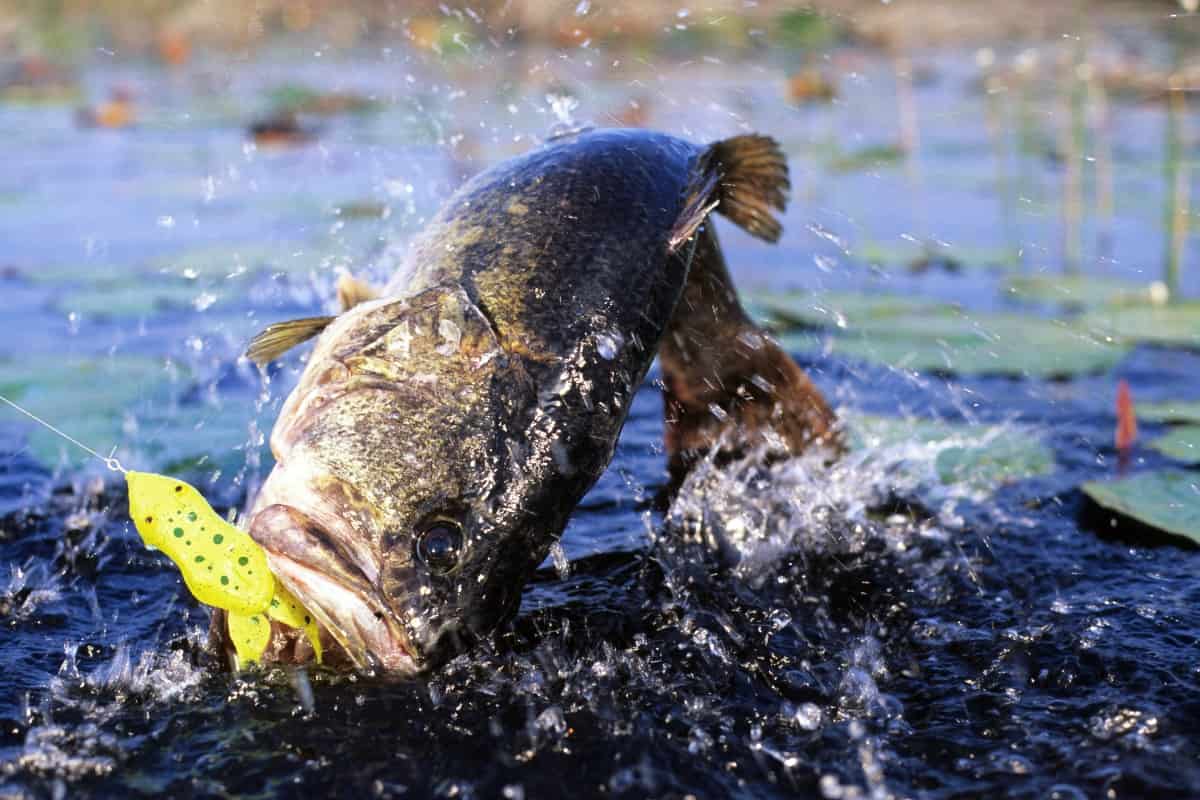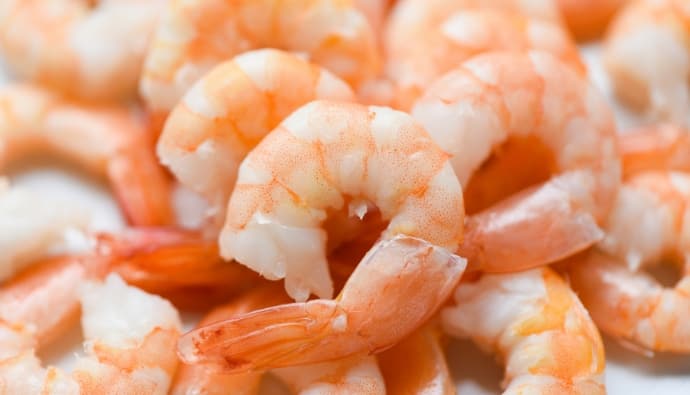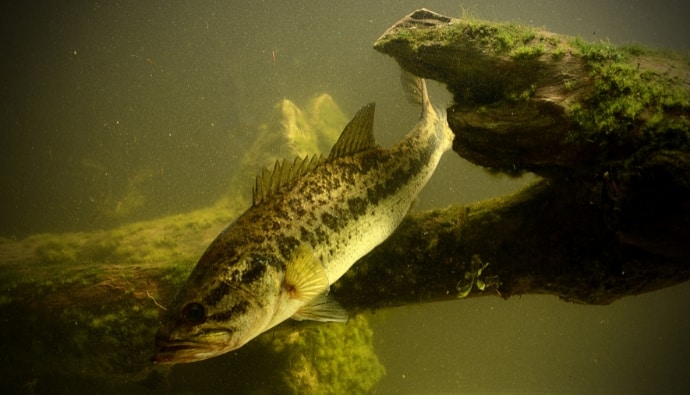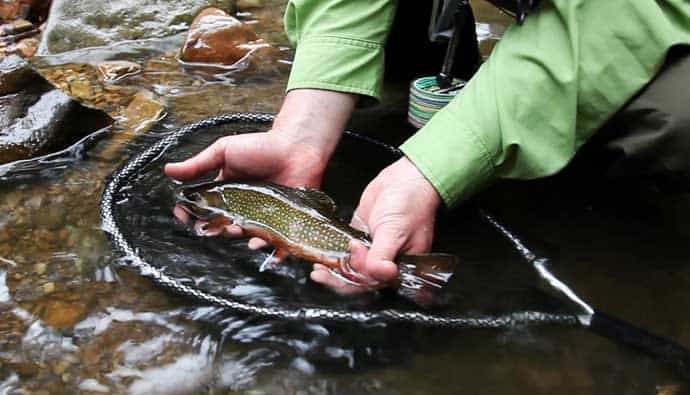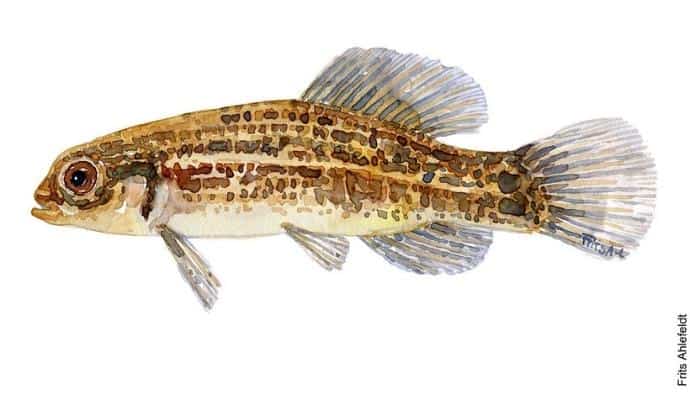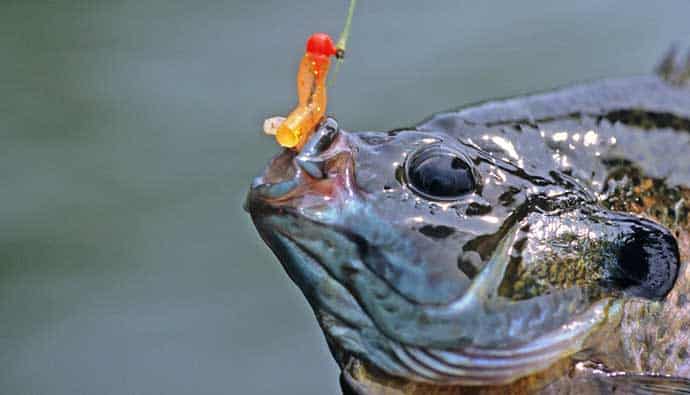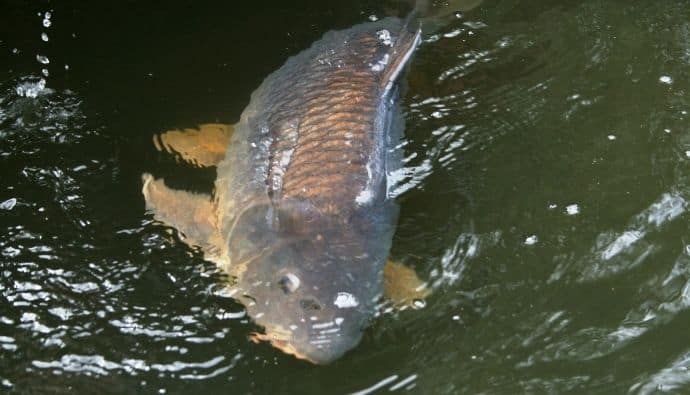The short answer is a bass can survive out of water for about 10 to 15 minutes. However, this time can vary depending on the bass’s size, the weather, and even the water temperature where the fish was caught. In this article, we’ll dive deeper into this topic, discussing bass physiology, proper fish handling, the practice of catch and release, and much more.
So, if you’re ready to become a more informed and responsible angler, let’s get started.
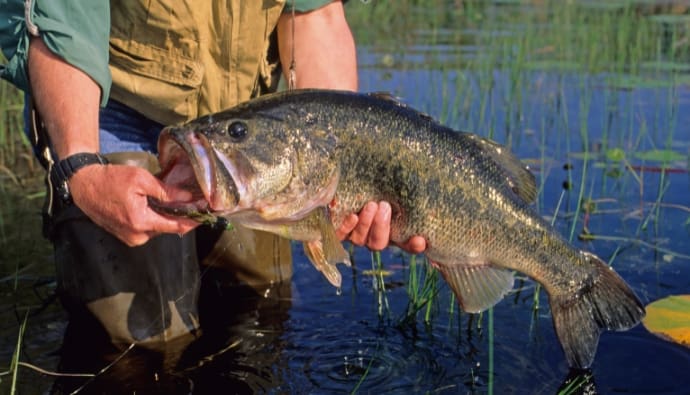
Understanding Bass Physiology
Let’s talk about a bass’s breathing.
They use gills. Gills work like our lungs but in water. They pull oxygen from the water. This lets them breathe. But what about when they’re out of water?
Well, it’s stressful.
Being out of water dries their gills. This makes it hard to breathe. The longer they’re out, the more stress they feel. It’s like if you or I were underwater without air. Scary, right?
Here’s a fact.
Bass are tougher than some other fish. Some fish species can’t survive long at all out of water. Bass, though? They’re fighters. But even fighters have limits.
Let’s compare.
Some fish, like mudskippers, spend time out of the water. They can breathe air. Bass can’t do that. They need to stay wet to get oxygen. If they dry out, they can’t breathe at all. It’s a race against the clock.
So, how long can a bass live out of water?
Let’s find out.
How Long Can a Bass Survive Out of Water?
So, here’s the big question.
The answer is about 10 to 15 minutes. That’s the critical time frame. After that, things get dicey. But don’t be surprised if you see a bass alive even after 30 minutes of catching it. These, however, can’t be released back. These will die from shock.
But remember this.
The time can vary. Several factors can influence it. The bass’s size. The type of bass. The weather. Even the water temperature where it was caught. All these things matter.
Let’s break it down.
Bigger bass need more oxygen. This means they may struggle more out of water. On hot days, bass dry out faster. That’s bad news for them. Cool, damp weather can extend their out-of-water time.
And about the water…
Bass caught in warm water gets stressed more easily. Why? Warm water holds less oxygen. So, these bass are already working hard to breathe. When they’re out of water, they have an even tougher time.
It’s all about balance.
Keep these factors in mind next time you catch fish. Treat every second out of the water as precious. Because for bass, it really is.
But, if you have a livewell on your boat, you can keep the bass alive for up to eight hours!
The Importance of Proper Fish Handling
Let’s talk about handling fish.
It’s crucial for their survival. The less time out of the water, the better. Every second counts. So, how can we make sure we’re doing our best?
First, hold them right.
Bass have delicate bodies. They should be held horizontally. Use both hands. One for the mouth, one for the tail. This supports their body weight.
Next, be gentle with the hook.
Removing the hook can be tricky. Use long-nosed pliers. Or try a hook remover. Be as gentle as possible. A rough hook removal can hurt a bass.
And about your gear…
Use fish-friendly gear. Circle hooks are a good option. They’re less likely to cause injury. Also, consider using a rubber net. It’s softer on the fish’s scales.
Remember, every little helps.
Small changes make a big difference. Handle bass with care. Keep their time out of the water to a minimum. They’ll thank you for it. And you’ll be a more responsible angler. It’s a win-win.
The Ethical Implications of Catch and Release Fishing
Catch and release fishing is a big deal.
It’s about respect. Respect for the fish. Respect for nature. And it has a big impact. It helps keep the bass population healthy.
So, how can we do it right?
First, minimize handling time.
Remember the 10-15 minute window? Aim for less. The quicker a bass is back in the water, the better.
Next, avoid injury.
Hold the bass fish gently. Be careful with the hook. Use fish-friendly gear. These things all help a bass recover faster.
And about the release…
Don’t just drop the fish back in the water. Lower it in gently. Let it swim from your hands. This gives it a chance to recover. And it’s a beautiful moment. A connection between you and nature.
Catch and release is more than a fishing practice.
It’s a commitment. A commitment to conservation. To be a responsible angler. And to give each bass the best chance at survival. That’s something we can all strive for.
Do Bass Die After Being Caught?
Here’s a common question.
Do bass die after being caught? The short answer is not necessarily. It depends. On what, you ask? Let’s break it down.
It depends on the handling.
Remember our fish handling tips? They’re vital here. Proper handling gives a bass the best chance at survival. It reduces stress. It minimizes injury. And it gets the fish back in water faster.
It also depends on the bass and where they live.
Some bass are tougher than others. They handle stress better. They recover faster. But even the toughest bass can struggle if not handled correctly. Also, bass living in colder regions will survive longer. So even if they were the same species, the time they live out of water will vary.
And it depends on you.
You, the angler, hold a bass’s life in your hands. Your actions can mean the difference between life and death for a bass.
But according to a statistic, almost 50% of bass die after getting caught in tournament fishing. This includes the ones that are released back into their natural habitat.
So, do bass die after being caught?
They don’t have to. With careful, responsible bass fishing, we can ensure that most bass live to swim another day. And that’s a goal worth aiming for.
Conclusion
We hope you take the above lessons to heart. Apply them in your fishing. Treat each bass with care. Respect their fight for life. Be the kind of angler that every fish deserves.
Because, in the end, bass fishing is about more than the catch. It’s about the journey. The connection with nature. The joy of the outdoors. And the satisfaction of knowing you’re doing your part to keep our waters full of life.
So here’s to you, responsible angler. May your lines be tight, your catches be many, and your respect for nature be boundless.





 Facebook
Facebook YouTube
YouTube